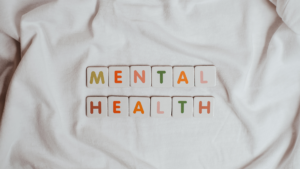According to the 2023 Australian Bureau of Statistics, 41% (or 2 in 6) of Australian women have endured the horrors of domestic, family, and sexual violence (DFSV) after the age of 15.
For business owners and leaders of women, that means that 41% of your female workforce may have weathered this storm. Very few companies understand the magnitude of these statistics and what it means for their business. Australia loses $1.9B in absenteeism resulting from post-crisis trauma alone. The loss of productivity due to personal struggles may have a profound and unseen impact on a business’ bottom line and the happiness of its employees.
So how do the leaders of women foster spaces of support, understanding, and respect, to amplify the strength of survivors?
In the realm of professional spaces, there is an imperative to not only acknowledge the resilience of survivors of domestic, family, and sexual violence but also actively contribute to and support their journey of healing. The importance of a work environment cannot be overstated in this context – it becomes a powerful catalyst for rebuilding lives and fostering a sense of security.
Creating a workplace that prioritises the well-being of survivors involves a multifaceted approach. It begins with cultivating a culture of empathy and understanding, recognising the diverse experiences and challenges that survivors may bring to the professional arena. Sensitivity training and education play pivotal roles in promoting awareness among colleagues, stimulating an environment free from judgment and stigma. Human Resource professionals must be able to walk alongside victim/survivors, supporting them throughout their journey.
Offering flexible work arrangements can be instrumental in accommodating the unique needs of survivors as they navigate the aftermath of trauma. Flexibility provides not just practical assistance but sends a powerful message of support, acknowledging that healing is a journey with varying paces and needs.
In the pursuit of empowerment, providing access to resources and mental health support within the workplace is indispensable. Employee assistance programs, counselling services, and confidential avenues for seeking help, contribute to the creation of a safety net for survivors. This not only acknowledges the impact of trauma but actively addresses it, fostering holistic well-being.
Leadership commitment is essential in shaping a work environment that prioritises the empowerment of survivors. When leaders advocate for inclusive policies, model empathetic behaviour, and champion diversity and inclusion, they set the tone for a workplace that values each individual’s journey.
Taking an active stance to support domestic, family, and sexual violence affected employees builds a business’s reputation as a caring employer, improving retention of good staff and helping to address issues that can escalate to significantly affect an employee’s capacity to engage effectively at work.
Ultimately, a supportive work environment for survivors of domestic, family, and sexual violence transcends the professional realm; it becomes a cornerstone of their healing journey. As survivors reintegrate into the workforce, the workplace can stand as a symbol of resilience, growth, and the possibility of a brighter future. In fostering environments that champion empathy, flexibility, and support, we not only empower survivors but also contribute to a more compassionate and understanding society.
Have you signed up to the Adamas Nexus Newsletter? Click HERE to sign up now.
Find Your Tribe So You Can Thrive – Tedx Talk with Kristine Hewett
Many people have had a traumatic incident in their lives, and we now all have the collective trauma of COVID. Why is there an expectation that we need to ‘get over it’ or ‘move on from it’? Lived experiences may well have happened in our past, but they have ongoing impact on our now and our future. Kristine wants to help people to do more than survive and to in fact thrive by finding their people or tribe.




